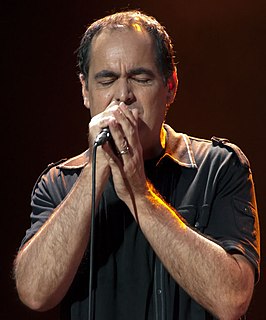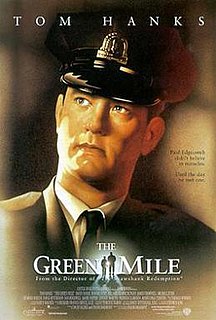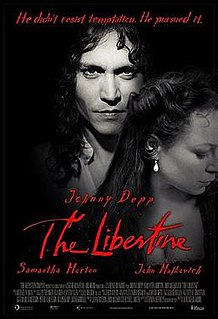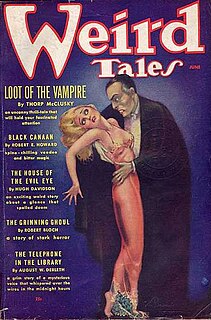
"The Man Who Would Be King" (1888) is a story by Rudyard Kipling about two British adventurers in British India who become kings of Kafiristan, a remote part of Afghanistan. The story was first published in The Phantom Rickshaw and other Eerie Tales (1888); it also appeared in Wee Willie Winkie and Other Child Stories (1895) and numerous later editions of that collection. It has been adapted for other media a number of times.
"Gunga Din" is an 1890 poem by Rudyard Kipling set in British India. The poem is much remembered for its final line: "You're a better man than I am, Gunga Din".
Transatlantic is a multinational progressive rock supergroup consisting of Neal Morse, Roine Stolt, Pete Trewavas and Mike Portnoy. They formed in 1999 as a side project to their full-time bands, but disbanded in 2002. They then reunited in 2009.

The Libertines are an English rock band, formed in London in 1997 by frontmen Carl Barât (vocals/guitar) and Pete Doherty (vocals/guitar). The band, centred on the songwriting partnership of Barât and Doherty, has also included John Hassall (bass) and Gary Powell (drums) for most of its recording career. The band was part of the garage rock revival and spearheaded the movement in the UK.

Neal Morse is an American singer, musician and composer based in Nashville, Tennessee. In 1992, he formed the progressive rock band Spock's Beard with his brother Alan and released an album which was moderately successful. In 1999, he joined Dream Theater's co-founder and then drummer Mike Portnoy, together with Flower Kings' Roine Stolt and Marillion's Pete Trewavas they formed the super-group Transatlantic. In 2002, Neal Morse became a born again Christian, left Spock's Beard and began a Christian rock solo career, releasing many progressive rock concept albums about his new religious faith. In the meantime, he continued to play with Transatlantic and formed three new bands with Portnoy, Yellow Matter Custard, Flying Colors and The Neal Morse Band.

The Jungle Book is a 1967 American animated musical comedy film produced by Walt Disney Productions. Based on Rudyard Kipling's 1894 book of the same name, it is the 19th Disney animated feature film. Directed by Wolfgang Reitherman, it was the last film to be produced by Walt Disney, who died during its production. The plot follows Mowgli, a feral child raised in the Indian jungle by wolves, as his friends Bagheera the panther and Baloo the bear try to convince him to leave the jungle before the evil tiger Shere Khan arrives.

The Green Mile is a 1999 American fantasy drama film written and directed by Frank Darabont and based on Stephen King's 1996 novel of the same name. It stars Tom Hanks as a death row prison guard during the Great Depression who witnesses supernatural events following the arrival of an enigmatic convict at his facility. David Morse, Bonnie Hunt, Doug Hutchison and James Cromwell appear in supporting roles.
Leviathan is a Biblical sea monster.

Carl Ashley Raphael Barât is a British musician and actor, best known for being the co-frontman with Pete Doherty of the garage rock band The Libertines. He was the frontman and lead guitarist of Dirty Pretty Things, and in 2010 debuted a solo album. In 2014 he announced the creation of his new band, The Jackals.

The Libertine is a 2004 British-Australian drama film, the first film directed by Laurence Dunmore. It was adapted by Stephen Jeffreys from his play of the same name, starring Johnny Depp, John Malkovich, Samantha Morton, and Rosamund Pike.
Supernatural typically refers to unexplained or non-natural forces and phenomena.

Vampires are frequently represented in popular culture, including appearances in ballet, films, literature, music, opera, theatre, paintings, and video games.

The Man Who Would Be King is a 1975 Technicolor adventure film adapted from the 1888 Rudyard Kipling novella of the same name. It was adapted and directed by John Huston and starred Sean Connery, Michael Caine, Saeed Jaffrey, and Christopher Plummer as Kipling. The film follows two rogue ex-soldiers, former non-commissioned officers in the British Army, who set off from late 19th-century British India in search of adventure and end up in faraway Kafiristan, where one is taken for a god and made their king.
Mayday or May Day may refer to:
"I Wan'na Be Like You " is a song from Walt Disney's 1967 film The Jungle Book. The song was written by songwriters Robert and Richard Sherman, and was performed by singer and musician Louis Prima as King Louie, with Phil Harris providing additional vocals as Baloo the bear.
They is a third-person, personal pronoun
Flying Colors is an American supergroup composed of Mike Portnoy, Dave LaRue, Casey McPherson, Neal Morse, and Steve Morse. The band's mission, chartered by executive producer Bill Evans, is to combine complex music with accessible songwriting. Flying Colors, on Mascot Label Group, has released three studio albums, and three live albums, to commercial success and critical acclaim.
Iceman, The Iceman, Ice Man, or Ice Men may refer to:
"Gunga Din" is an 1890 poem by Rudyard Kipling.








